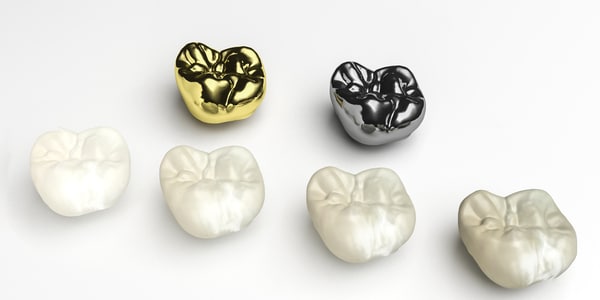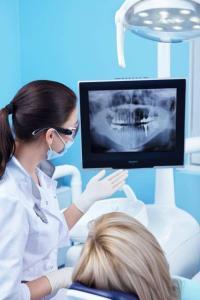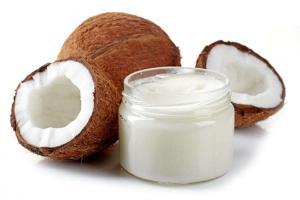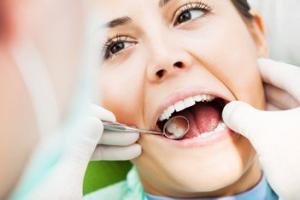Alternatives to Stainless Steel Crowns
Alternatives to stainless steel crowns include resin-based fillings and all-porcelain crowns. These options avoid placing metal in the mouth. The filling material we use in our office is primarily comprised of porcelain particles and has minimal resin fillers, making it a safer dental material. For pediatric patients, if the cavity is small to moderate in size, we can usually use a filling to eliminate the cavity and rebuild the tooth. If the cavity is significantly larger, we may need to do a crown instead to fully encircle the tooth in order to protect it from fracturing and continuing to decay. In our office we only make all-ceramic crowns.
Types of Dental Crowns:

- Metals and Stainless Steel
Stainless steel crowns are inexpensive and practical. They are usually prefabricated and can be placed the same day in office; however, because they are prefabricated they may not have a perfect marginal seal, which may later cause bacterial seepage into the crown causing the tooth to become further decayed or infected. One other issue is that approximately 10-15% of the population has a metal allergy or hypersensitivity, so using metals in some patients may be contraindicated.
- Porcelain-fused-to-metal
Porcelain-fused-to-metal crowns used to be the most common type of crown placed a decade ago. They are relatively natural-looking although often can appear to opaque and sometimes can stand out. Another issue is that since the inside of it and rim of the crown are metal, over time, more of the metal can be exposed which can be unesthetic and also can feel jagged if a porcelain portion breaks off from the metal shell.
- All-resin
All-resin crowns do not exist in dentistry, but large all-resin fillings are done frequently. Teeth can have fillings when they have cavities but only to a certain size. If the cavity is too large, placing a filling may not be appropriate, in that it can weaken the tooth’s structural integrity if it’s too broad of an area, and in these cases a crown may be more appropriate.
- All-ceramic or all-porcelain
All -ceramic crowns are the most commonly used material for crowns today in dentistry. Ceramics have come a long way in the last decade. They originally were esthetic but not necessarily as long lasting as metal based crowns. Nowadays, because of material advancements, they have now become even more esthetic and just as strong, or even stronger than metals. All-ceramic crowns are both durable and blend in well with the shade of your natural teeth.
Does getting a crown hurt?
No, getting a crown does not hurt. You will be properly anesthetized and will feel cold water and vibration while we are working. While your crown is being fabricated in the laboratory, you will be wearing a temporary crown for a few weeks. In this time, you may experience some mild cold or chewing sensitivity, but once the permanent crown has been placed the sensitivity will calm down. We will make sure that the permanent crown has proper a fit and shade for you. We make sure to use biocompatable all-ceramic crowns and cements.
If you have cavities we are happy to assess what type of treatment you need. You can feel safe in our office knowing that we will properly diagnose and treat your cavities, and use only the safest and most biocompatable materials. Please call our office for a consultation 301-770-2270 or schedule an appointment here.




